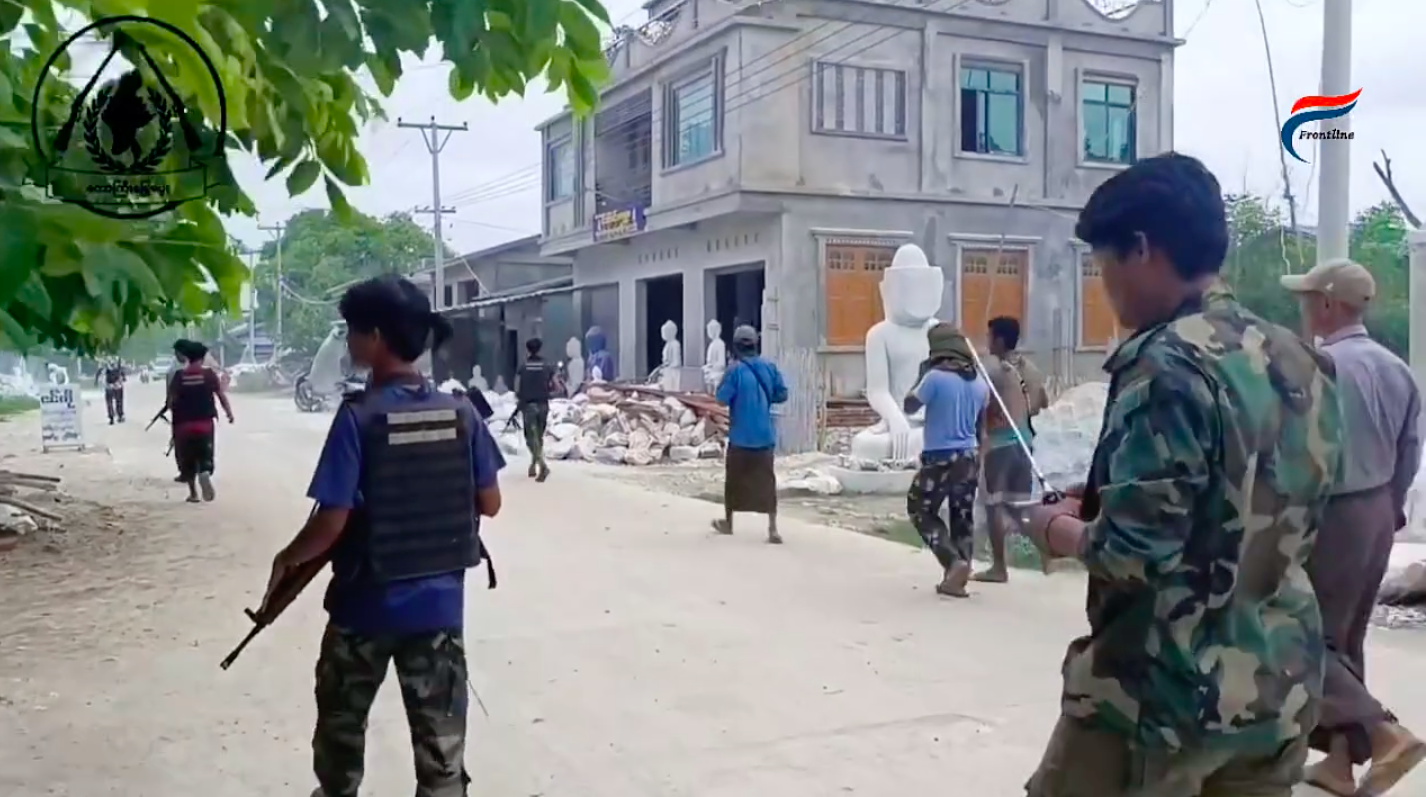The junta replaced its security and border affairs ministers in four states and one region with younger colonels on Friday, it said in a statement.
It is struggling to regain rural territory amidst rising resistance attacks in the states and region, while regime targets in their cities and towns are also face escalating attacks, analysts say.
Colonel Kyaw Thura has been appointed minister of Security and Border Affairs in Kachin State, replacing Colonel Aung Kyi Lin.
The regime had deployed a massive number of troops to retake former bases and attack the headquarters of the Kachin Independence Army (KIA) in Laiza Town on the border with China. However, while facing resistance attacks in Kachin State towns, junta forces have also been fighting KIA troops along the Myitkyina-Bhamo Road, in Hpakant Township, and in neighboring townships of northern Shan State since July.
In Kayah State, Colonel Than Soe Aung has replaced Colonel Myint Wai as minister of Security and Border Affairs. A town near the border with Thailand and four junta bases in the state were seized by Karenni resistance groups in June. Despite sending massive reinforcements to topple the resistance in the state, anti-regime forces are getting stronger. Junta troops have suffered heavy losses in the state and lost more territory.

In Karen State, Colonel Min Thu Kyaw has replaced Colonel Myo Min Naung as minister of Security and Border Affairs. Junta military bases, police stations and junta-run administration department offices in the state’s towns have been attacked by resistance groups.
In Chin State, Colonel Thein Tun Aung has replaced Colonel Han Win Aung as minister of Security and Border Affairs. The junta has lost control of most of Chin State. Ethnic Chin resistance groups and the Chin National Army, the armed wing of Chin National Front, have launched heavy offensives against the junta’s military headquarters in the state as well as regime targets in and around town.
In Mandalay Region—where rising resistance attacks are also occurring—Colonel Nay Lin Soe has replaced Colonel Kyaw Kyaw Min as minister of Security and Border Affairs. In August, a local resistance group made a daring foray into Sagyin Town in Madaya Township, just an hour drive from county’s second-largest city, Mandalay.
All the new junta-appointed ministers are younger than and junior to the ones they replaced.
Former army captain Lin Htet Aung, who defected and has been helping other soldiers defect, told The Irrawaddy on Saturday that reshuffles are common will have no effects on how the military responds to resistance forces because Security and Border Affairs ministers are not responsible for combat.
Their main responsibility is for security and supervising government staff, including the police, he added. The junta is currently attempting to train civil servants to form reserve forces.
“When the junta will have to use all its military forces at [multiple] frontlines, police forces and military-trained civil servants will be essential to hold control of cities and towns. The reshuffle might be related to this potential situation because those ministers are the main ones [responsible] for commanding the police and civil servants” Lin Htet Aung explained.
Junta leaders also prefer to appoint younger military personnel because they are more obedient than their seniors, he said.
The junta is facing rising attacks from People’s Defense Forces and ethnic armed organizations across the country, except in Rakhine State where the Arakan Army agreed to a temporary ceasefire with the regime last November.
